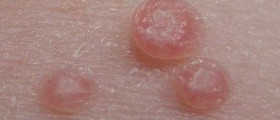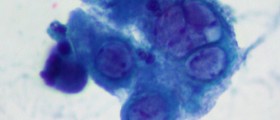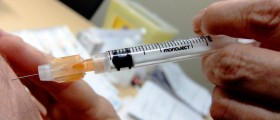
Genital warts are among the most common sexually transmitted diseases. According to health authorities, there are 5.5 million new cases of genital warts in the United States each year. They are curable but it is important to diagnose them early on and to follow through the treatment in order to prevent their reoccurring.
What are genital warts
Genital warts are caused by human papillomavirus or HPV. There are many different types of HPV, some of them cause genital warts and others may cause cervical cancer. Those types that cause warts do not cause cancer, and vice versa.
Genital warts are small, pink or flesh-colored, non-cancerous growths that appear in the genital area. Women suffer from them more then men, even though both men and women can be carriers. Men in most cases carry the virus but do not get warts as often as women do. However, if they do appear in men, warts are usually located on the tip of the penis or on the shaft and also in the anal area. Warts can spread to oral area via unprotected oral sex.
The problem with HPV virus is that it can be asymtomatic, meaning that it can be present in the body without causing warts. This especially goes for men. If a person does not have warts, it does not necessarily mean he or she does not have the virus. This is one of the reasons why it is necessary to use protection during sexual intercourse.
Diagnose and treatment for genital warts
Every person who has had unprotected sex or who suspects for any other reason that he or she may have contracted HPV, should see a doctor and undergo a physical exam. Warts are not necessarily visible with the naked eye, especially if they are located inside the vagina or anus. Doctors usually use a liquid similar to diluted vinegar, which make the warts turn white and more visible.
Unfortunately, since this condition is caused by virus, there is no treatment that will cure it completely, in sense of removing the virus from the body. The warts, however, can be treated, but they may appear again if the virus is still present.
Treatment of genital warts depends on their size, number and location.
Medications used for genital warts are usually in form of solution or ointment. Some of them include Imiquimod, a drug which improves the immune response, 20% podophyllin solution, 5% 5-fluorouracil cream and Trichloroacetic acid (TCA). Some of the medications are not suitable for pregnant women.
Smaller warts can be surgically removed. Surgical options include laser removal, cryosurgery or freezing and electrocauterization or burning.
There is also an antiviral drug called alpha-interferon, which can be injected directly to the wart, however these injections are quite expensive and do not guarantee that the warts will not reoccur.

















Your thoughts on this
Loading...